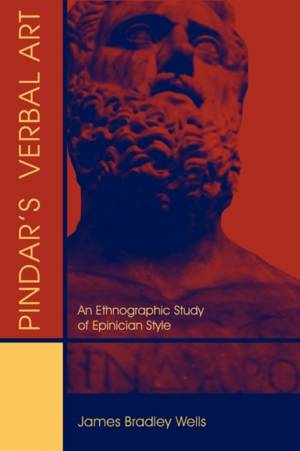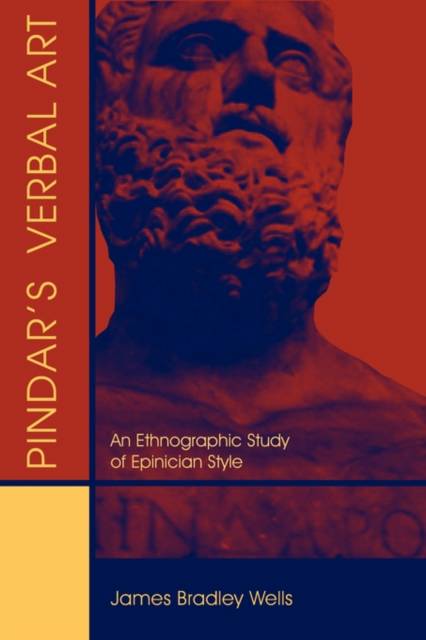
- Afhalen na 1 uur in een winkel met voorraad
- Gratis thuislevering in België vanaf € 30
- Ruim aanbod met 7 miljoen producten
- Afhalen na 1 uur in een winkel met voorraad
- Gratis thuislevering in België vanaf € 30
- Ruim aanbod met 7 miljoen producten
Zoeken
€ 33,95
+ 67 punten
Omschrijving
In Pindar's Verbal Art, James Bradley Wells argues that the victory song is a traditional art form that appealed to a popular audience and served exclusive elite interests through the inclusive appeal of entertainment, popular instruction, and laughter. This is the first study of Pindar's language that applies performance as a method for the ethnographic description and interpretation of entextualized records of verbal art. In Mikhail Bakhtin's terms, Pindar's Verbal Art is a sociological stylistics of epinician language and demonstrates that Pindar's is a highly dialogical form of art, an intertextual web of voices, whose study enables us to appreciate popular dimensions of his songs. Wells offers a new take on recurrent Pindaric questions: genre, the unity of the victory song, tradition, and, principally, epinician performance.
Specificaties
Betrokkenen
- Auteur(s):
- Uitgeverij:
Inhoud
- Aantal bladzijden:
- 250
- Taal:
- Engels
- Reeks:
- Reeksnummer:
- nr. 40
Eigenschappen
- Productcode (EAN):
- 9780674036277
- Verschijningsdatum:
- 1/02/2010
- Uitvoering:
- Paperback
- Formaat:
- Trade paperback (VS)
- Afmetingen:
- 152 mm x 229 mm
- Gewicht:
- 376 g

Alleen bij Standaard Boekhandel
+ 67 punten op je klantenkaart van Standaard Boekhandel
Beoordelingen
We publiceren alleen reviews die voldoen aan de voorwaarden voor reviews. Bekijk onze voorwaarden voor reviews.











